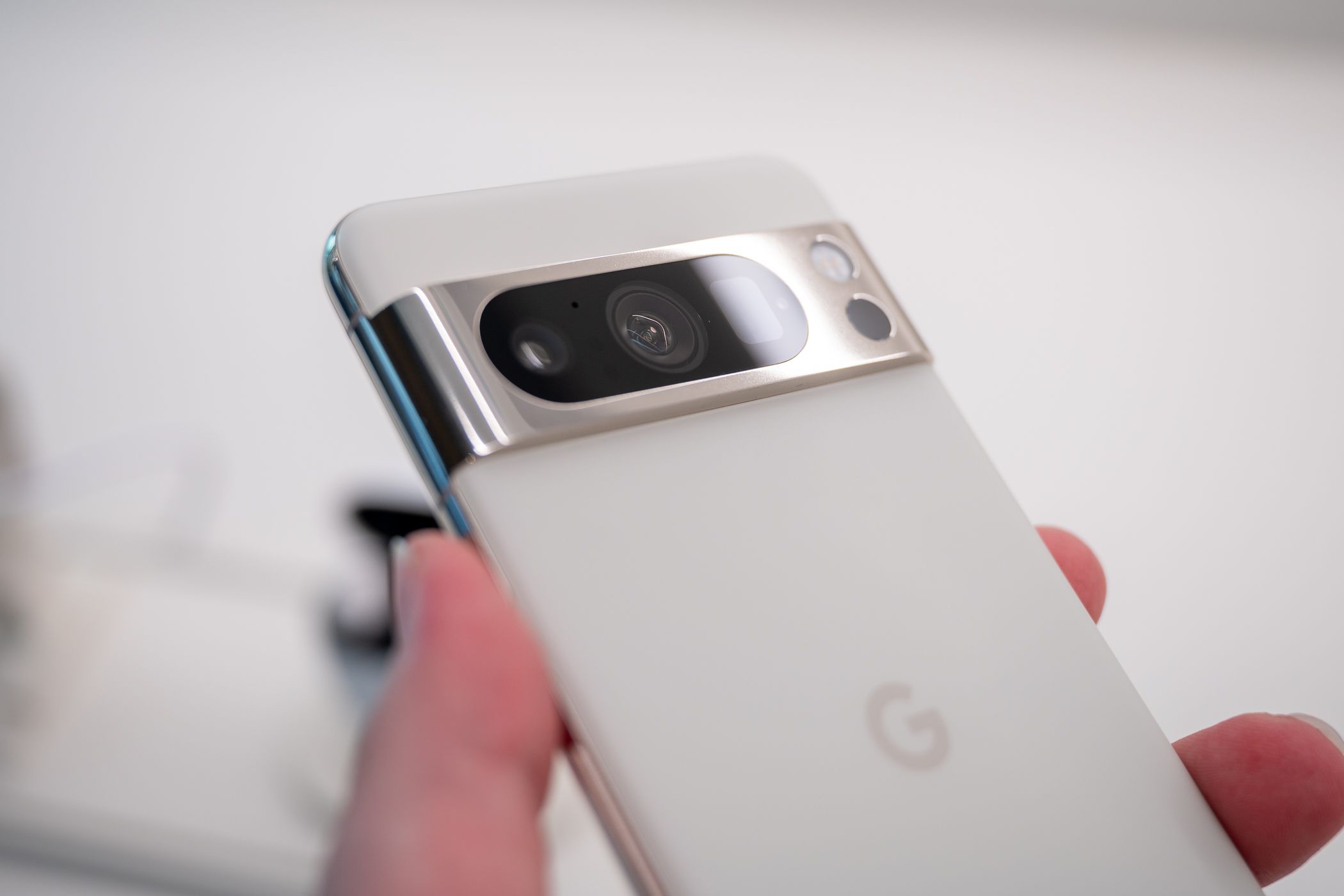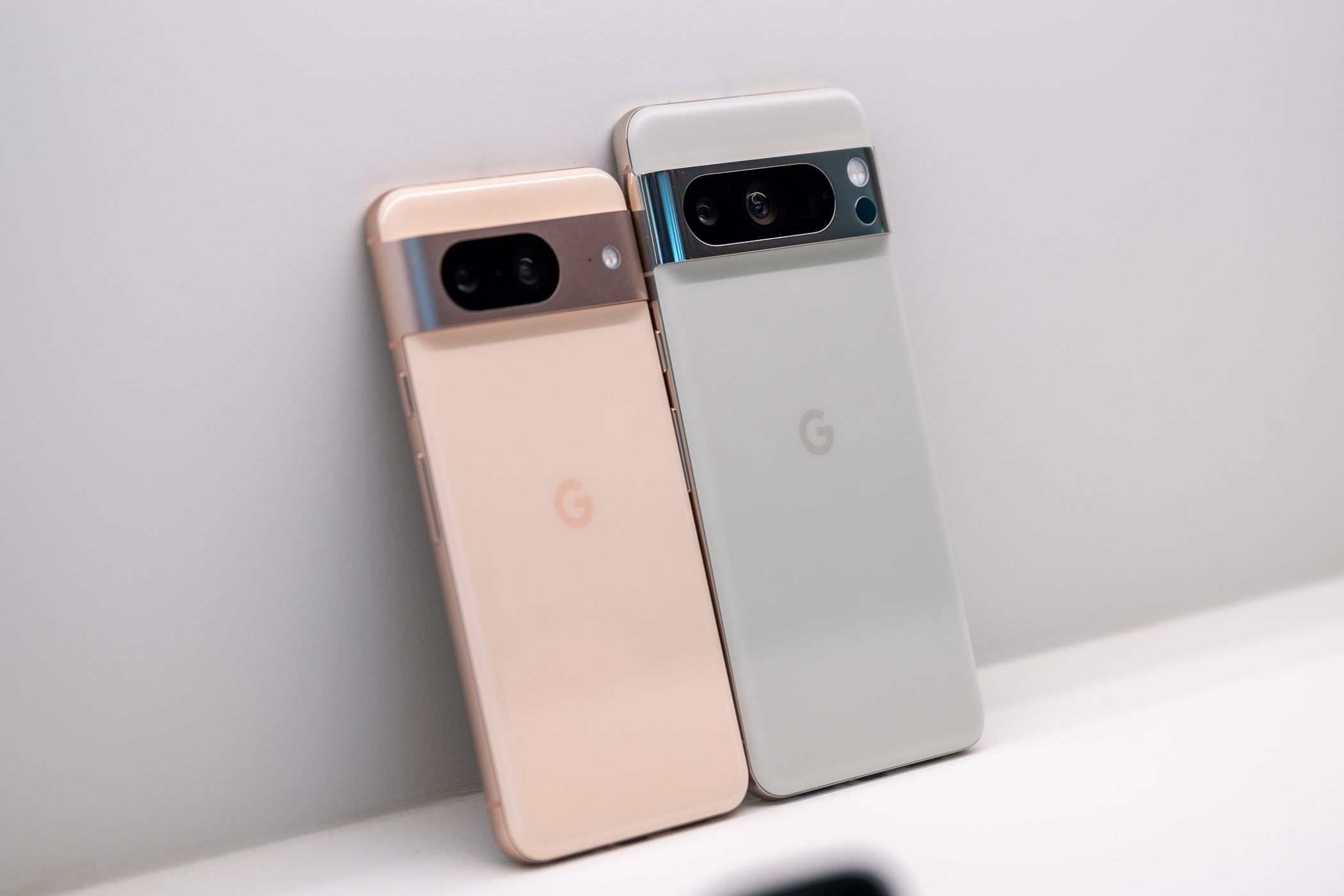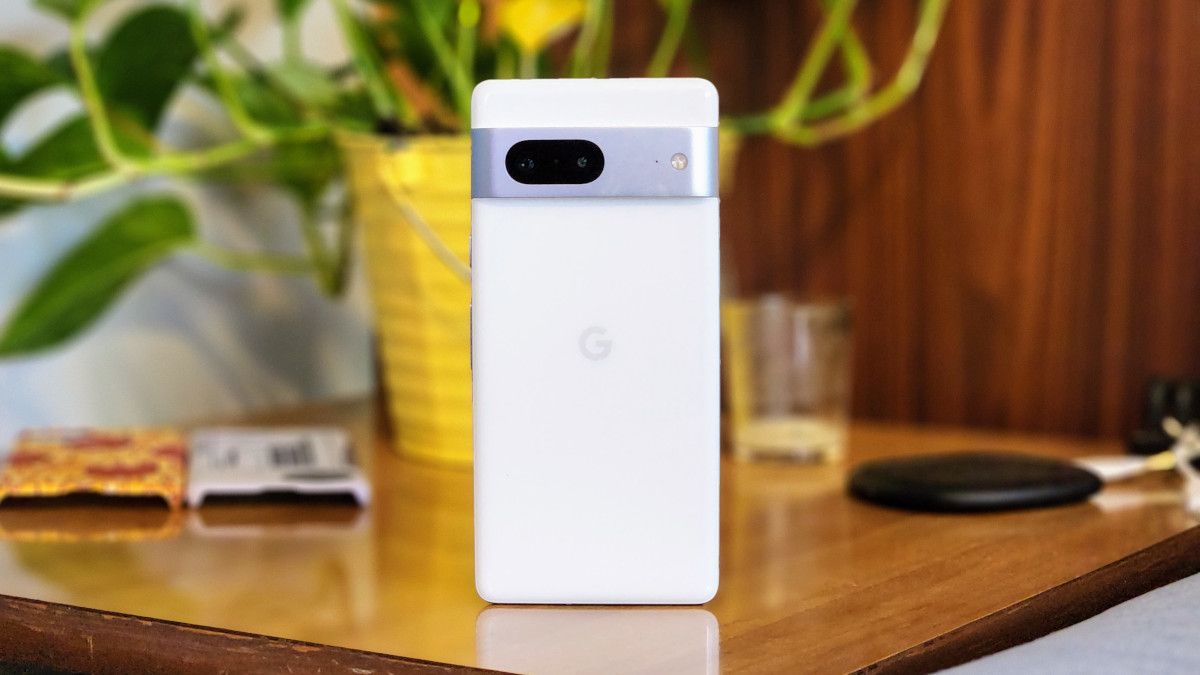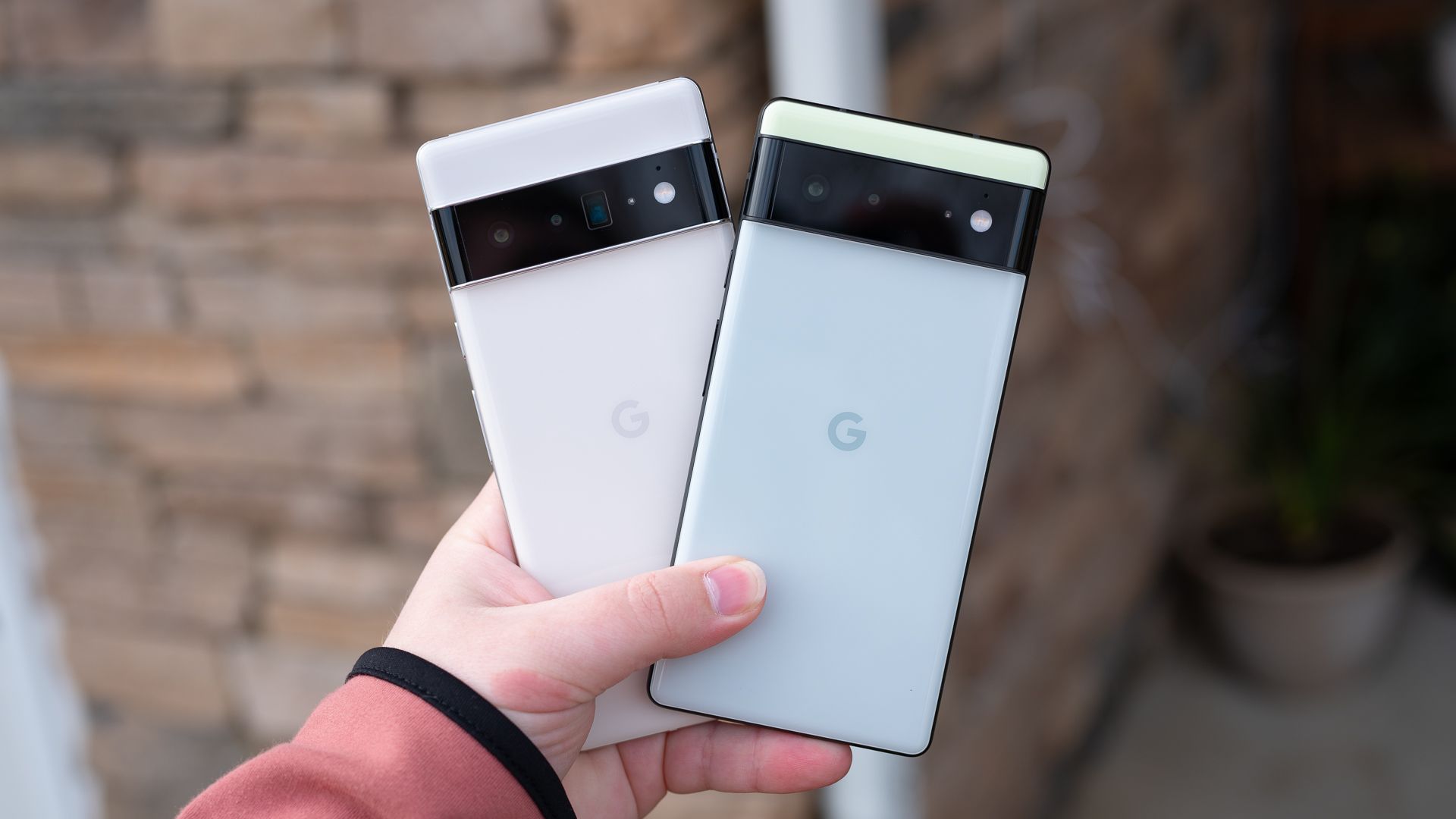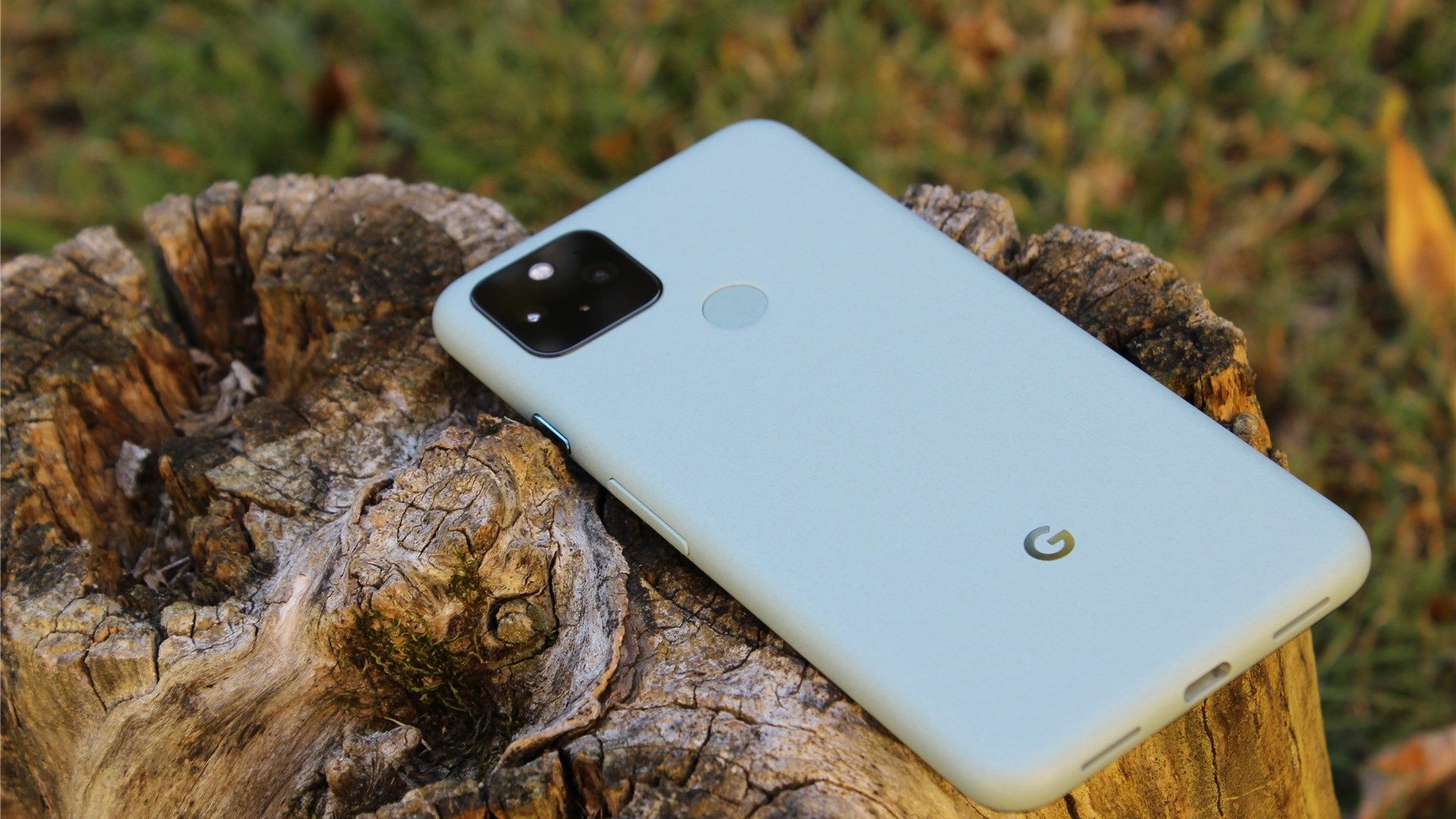Quick Links
Since 2016, Google has released a new Pixel phone every October. The new Pixel is often compared to the last Pixel, but not everyone upgrades every year. How do the Pixel 8 and Pixel 8 Pro compare to previous generations?
Enter the Pixel 8
Before we dive into the comparisons, let's rundown the general features of the Pixel 8 and Pixel 8 Pro. The Pixel 8 has a 6.2-inch display with 120Hz refresh rate, while the Pro's 6.7-inch display has an adaptive 1 to 120Hz refresh rate. The Google Tensor G3 processor powers the phones with 8 or 12GB of RAM.
The Pixel 8 has a 50MP main camera and 12MP ultrawide. The Pixel 8 Pro has the same 50MP main camera with a 48MP ultrawide and 48MP telephoto with 5X optical zoom. The former has a 4,575 mAh battery, while the latter has a 5,050 mAh battery. Storage goes up to 256GG for the standard Pixel 8 and 512GB or 1TB (in the US) for the Pro model.
Both models run Android 14 out of the box with seven years of OS upgrades to look forward to. The Pixel 8 starts at $699, and the Pixel 8 Pro starts at $999. Now, we can take a look at how it shakes down compared to older Pixel phones that you might be rocking right now.
Pixel 8 vs. Pixel 7: Minor Upgrades
Like many smartphone upgrades these days, the differences between the Pixel 8 and its predecessor are not drastic. For starters, the phones look a bit different. The Pixel 8 series has a more rounded shape, and the bezels and displays have been shrunk a tiny bit to make the phones smaller.
Speaking of displays, the Pixel 8 series features brighter displays. The 8 Pro has a peak of 2400 nits, compared to 1500 nits for the 7 Pro. The Pixel 8's peak is 2000 nits, while the Pixel 7 was 1400 nits. The standard Pixel 8 also bumps the refresh rate up to 120Hz from 90Hz on the Pixel 7.
RAM has been upped from 8GB to 12GB on the Pro model, and the Pro model also has a new 1TB storage option in the US. The processor has been upgraded to the new Google Tensor G3, but we'll have to see how performance is improved in the real world. The Pixel 8 Pro has an ever so slightly bigger battery 5050mAh vs 5000mAh), and the Pixel 8's is bigger as well (4575mAh vs 4355mAh).
Lastly, the cameras. The biggest upgrade is the ultrawide camera on the Pixel 8 Pro. It's been upped to 48MP from 12MP on the Pixel 7 Pro. The aperture has been slightly improved for all of the cameras as well. Overall, it's a pretty similar camera experience.
To be honest, it's a similar experience all around between the two generations. If your Pixel 7 Pro or Pixel 7 is still in good condition, there's not a huge reason to upgrade this year. Google's trade-in deals are certainly not helping, either.
Pixel 8 vs. Pixel 6: Performance Boost
Let's go back to 2021 and take a look at the Pixel 6 and Pixel 6 Pro compared to the new Pixel 8 series. The displays on the Pixel 8 Pro and 6 Pro are almost the same. The 6 Pro actually has a slightly higher resolution at 512 pp vs the 8 Pro's 489 ppi. The Pixel 8's display is slightly smaller than the Pixel 6's (6.2 vs 6.4 in), but otherwise essentially the same.
RAM and storage are the same across the board, but the Pixel 8 Pro has an extra option of 1TB in the US. The Pixel 6 series was the first to feature Google's Tensor chip, which is two generations newer on the Pixel 8 series. You should notice a nice bump in performance if you upgrade. The battery on the Pixel 8 Pro is 47mAh bigger than the Pixel 6 Pro, while the Pixel 8's battery is 39mAh smaller than the Pixel 6.
The cameras on the Pixel 7 and Pixel 6 series are essentially the same, so you're looking at the same upgrades as mentioned in the section above. That means a bigger 48MP ultrawide camera on the Pixel 8 Pro and small aperture and focal length upgrades across both models. This is the first Pixel to feature the black bar camera design.
The upgrades from the Pixel 6 to the Pixel 8 are not as big as you might expect. The biggest difference is the processor. Going from the original Google Tensor to the Tensor G3 is a nice boost. Other than that, you're getting a bigger ultrawide camera and more of the same.
Pixel 8 vs Pixel 5: Time to Upgrade
The Pixel 5 is considered by some to be the best Pixel phone Google has made. It was the last phone before the switch to the black bar camera design, and there was only one Pixel 5 model—no "XL" or "Pro." The Pixel 8 will bring you into Google's modern design aesthetic that has become pretty easy to spot in the wild.
There are a handful of pretty big upgrades from the three-year-old Pixel 5. First, the Google Tensor G3 chip is a big step up from the Qualcomm Snapdragon 765G chip on the Pixel 5. The Pixel 5 was essentially a mid-range phone, so you're upgrading to a legit high-end phone in the Pixel 8 or 8 Pro. The Pixel 5 was only available with 128GB of storage and 8GB of RAM.
The second big upgrade is the cameras. The Pixel 5's main camera is only 12MP, while both Pixel 8 models rock 50MP main cameras. The secondary camera for the Pixel 5 is a 16MP ultrawide. That's actually a bit better than the 12MP ultrawide on the Pixel 8, but its dwarfed by the 48MP ultrawide in the Pixel 8 Pro. Also, the Pro has that extra 48MP telephoto lens.
One difference that you may not love is the switch to a rear-mounted physical fingerprint sensor to under-display optical sensors on the Pixel 8 series. This technology has gotten better, but I personally still prefer the rear-mounted sensors. A difference you will love is battery life. The Pixel 8 Pro has nearly 1000mAh more, and the Pixel 8 is a 500mAh improvement.
The jump from the Pixel 5 to the Pixel 8 is the biggest—no surprise there. If you're still rocking a Pixel 5, you will undoubtedly enjoy the upgrades that either the Pixel 8 or Pixel 8 Pro provide. Plus, the Pixel 5 will no longer be supported after October 2023.

